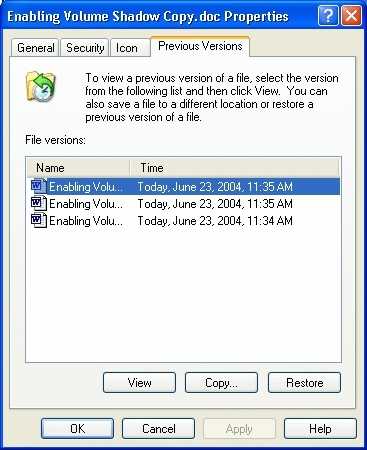18
4
Finally got convinced to start using some kind of version control for my code instead of zipping down a copy of the project at the end of each day.
Downloaded Tortoise SVN and used it to create a repository localy on my hdd. I've been using it for 2 days now but I have to say that using it is actually more hassle than just copying the project manually in explorer. Sure, you only store incremental changes but with the cheap disks of today I can't really say that's an argument when you only have small projects. I haven't realy found a quick way to browse the older versions of my files eighter.
What I want is an infinite undo that is completely transparent while I code, if I save the file I want a backup. I don't want to check out, check in and don't even get me started on moving files. I haven't tried Time Machine for OS X but it looks like it's exactly what I'm looking for.
Does such a program exist for windows? Preferably free and with some kind of tagging-system so I can tag a timestamp when the project is working etc.
Maybe should add that I mostly work alone on a single computer.
Update: Some of you asked why I want backup. Since I work alone it's mostly to allow me to quickly hack up a solution without worrying that something will screw up.

4The main difference between SCM and Time Machine is that with SCM you explicitely commit and you can retrieve all of your commits whereas with Time Machine backups are automatic (hourly) and some get lost with time: only one backup per week is kept forever (and you don't choose which one). – mouviciel – 2009-02-18T16:24:06.337
2I think an auto commit on every build that completes without errors, plus a lable whenever the unit tests pass could be good on a local branch for a lot of programmers – Ian Ringrose – 2009-12-16T16:41:22.167
1The problem with any version control, is that if you are the only developer on a probject, it is very hard to stop files you have not added to the version control system. Having a seperate build server works, but is a lot more to set up. Just backing up ALL files can be safer. – Ian Ringrose – 2009-12-16T16:42:48.590